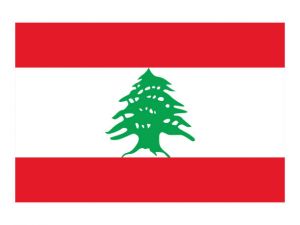Difference between revisions of "Language/Standard-arabic/Pronunciation/Lebanese-Accent"
m (Quick edit) |
|||
| (5 intermediate revisions by 2 users not shown) | |||
| Line 1: | Line 1: | ||
<div class="pg_page_title">The Lebanese Accent in Arabic</div> | |||
[[File:Lebanese-Arabic-PolyglotClub.jpg|thumb]] | |||
Hello, or in Arabic مرحبا or سلام علیکم 😀 | Hello, or in Arabic مرحبا or سلام علیکم 😀 | ||
I am MJ Mahdizadeh and as I have told you before, I want to share some examples of learning Lebanese accent of Arabic language with you, focusing on the difference between Standard (al Fos'ha) and Lebanese. | I am MJ Mahdizadeh and as I have told you before, I want to share some examples of learning Lebanese accent of Arabic language with you, focusing on the difference between Standard (al Fos'ha) and Lebanese. | ||
With this lesson behind you, consider expanding your knowledge with these additional resources: [[Language/Standard-arabic/Pronunciation/Letters|Letters]], [[Language/Standard-arabic/Pronunciation/Dhad-language-%D8%B6|Dhad language ض]] & [[Language/Standard-arabic/Pronunciation/Dhad-language-ض|Dhad language ض]]. | |||
__TOC__ | |||
==Examples== | |||
Look at the first example: | |||
* هُوَ یُریدُ أن یَأکُلَ الفُطور | * هُوَ یُریدُ أن یَأکُلَ الفُطور | ||
This sentence means "he wants to eat breakfast". It is expressed in Standard form of Arabic. Now look at the same phrase in Lebanese: | This sentence means "he wants to eat breakfast". It is expressed in Standard form of Arabic. Now look at the same phrase in Lebanese: | ||
| Line 15: | Line 19: | ||
You can see the differences here; from the form of "He" to using "Badd" instead of "Iradah" (to want in formal form) and "Tarvi'ah" instead of "Fotour". | You can see the differences here; from the form of "He" to using "Badd" instead of "Iradah" (to want in formal form) and "Tarvi'ah" instead of "Fotour". | ||
There are other examples here for you to compare, so let's review them: | There are other examples here for you to compare, so let's review them: | ||
* أستطیع أن أعرض لک الکتاب | * أستطیع أن أعرض لک الکتاب ⬅️ فیني افرجلک الکتاب | ||
* أحب أن أذهب إلی بیروت | * أحب أن أذهب إلی بیروت ⬅️ حابب روح علی (/ع) بیروت | ||
* هل یمکن أن تمحو هذه العبارة علی الصفحة؟ | * هل یمکن أن تمحو هذه العبارة علی الصفحة؟ ⬅️ ممکن تشیل هالعبارة عالصفحة؟ | ||
As you can see there are basic similarities along with basic differences. | As you can see there are basic similarities along with basic differences. | ||
==Videos== | |||
===Learn the Arabic Alphabet (Lebanese Pronunciation)=== | |||
<youtube>https://www.youtube.com/watch?v=26w5g8yN9PI</youtube> | |||
===Lebanese Arabic Pronunciation (Levantine Arabic)=== | |||
<youtube>https://www.youtube.com/watch?v=k5y8iI_LFZw</youtube> | |||
===Lebanese Alphabet and pronunciation=== | |||
<youtube>https://www.youtube.com/watch?v=ZW84-JEUQeg</youtube> | |||
==Other Lessons== | |||
* [[Language/Standard-arabic/Pronunciation/Letters|Letters]] | |||
* [[Language/Standard-arabic/Pronunciation/Alphabet-and-Pronunciation|Alphabet and Pronunciation]] | |||
* [[Language/Standard-arabic/Pronunciation/Dhad-language-ض|Dhad language ض]] | |||
<span links></span> | |||
Latest revision as of 22:12, 26 March 2023
Hello, or in Arabic مرحبا or سلام علیکم 😀
I am MJ Mahdizadeh and as I have told you before, I want to share some examples of learning Lebanese accent of Arabic language with you, focusing on the difference between Standard (al Fos'ha) and Lebanese.
With this lesson behind you, consider expanding your knowledge with these additional resources: Letters, Dhad language ض & Dhad language ض.
Examples[edit | edit source]
Look at the first example:
- هُوَ یُریدُ أن یَأکُلَ الفُطور
This sentence means "he wants to eat breakfast". It is expressed in Standard form of Arabic. Now look at the same phrase in Lebanese:
- هُوي بَدّو یِأکُل الترویقة (الترویئا)
You can see the differences here; from the form of "He" to using "Badd" instead of "Iradah" (to want in formal form) and "Tarvi'ah" instead of "Fotour".
There are other examples here for you to compare, so let's review them:
- أستطیع أن أعرض لک الکتاب ⬅️ فیني افرجلک الکتاب
- أحب أن أذهب إلی بیروت ⬅️ حابب روح علی (/ع) بیروت
- هل یمکن أن تمحو هذه العبارة علی الصفحة؟ ⬅️ ممکن تشیل هالعبارة عالصفحة؟
As you can see there are basic similarities along with basic differences.
Videos[edit | edit source]
Learn the Arabic Alphabet (Lebanese Pronunciation)[edit | edit source]
Lebanese Arabic Pronunciation (Levantine Arabic)[edit | edit source]
Lebanese Alphabet and pronunciation[edit | edit source]
Other Lessons[edit | edit source]
